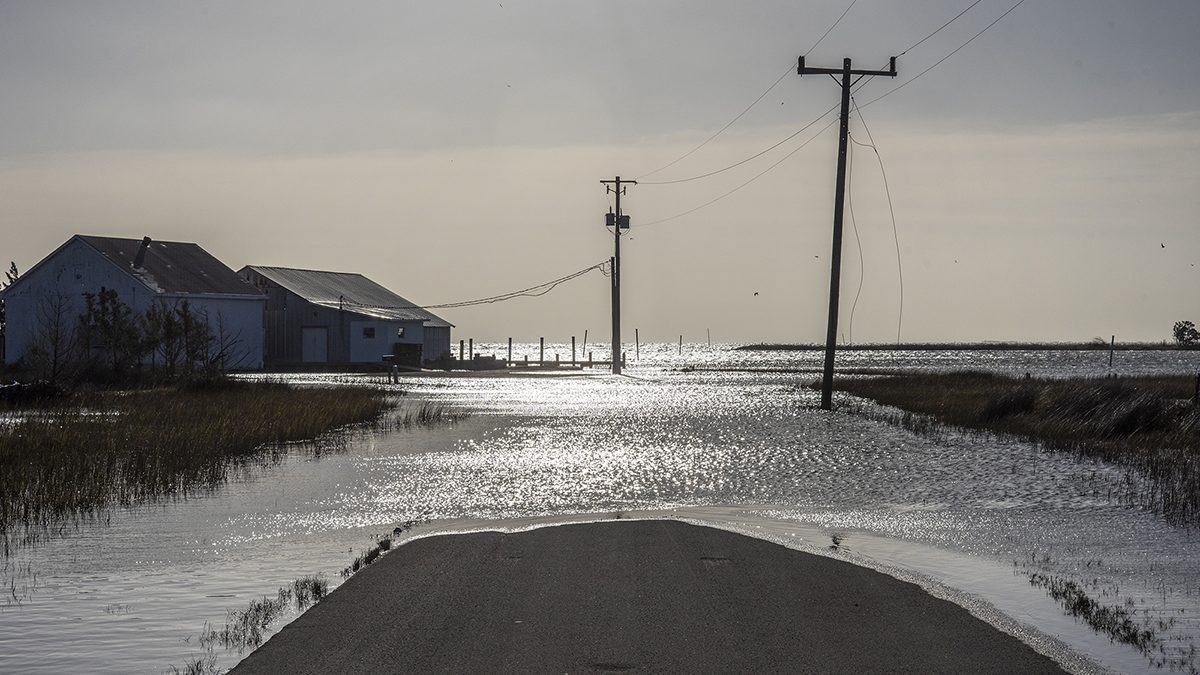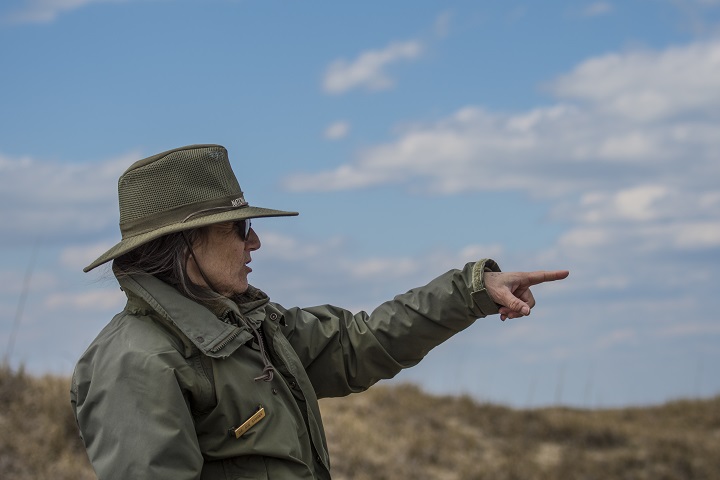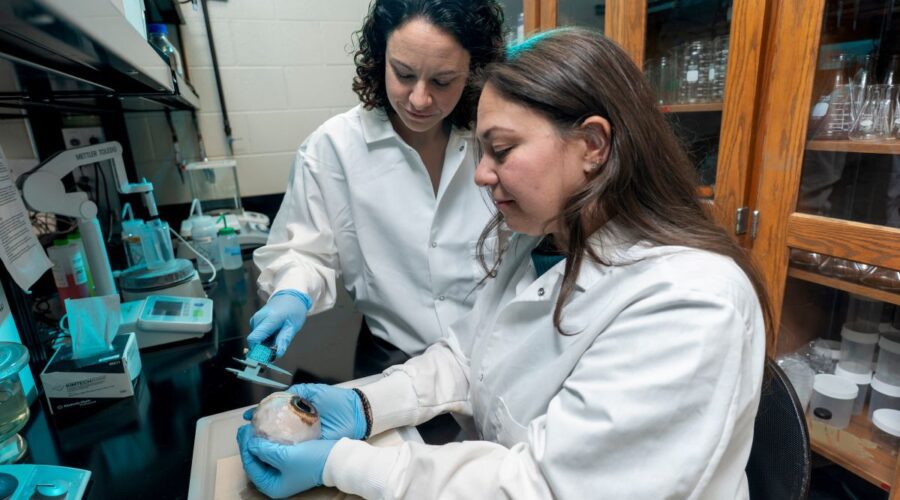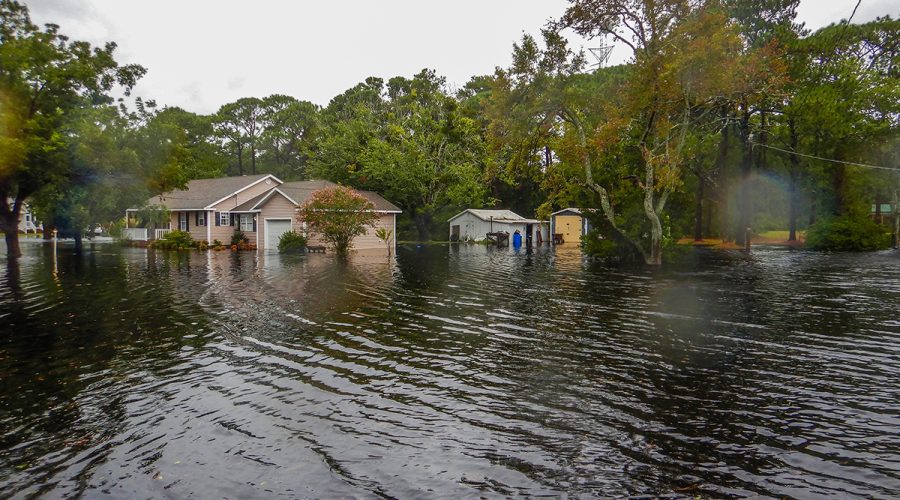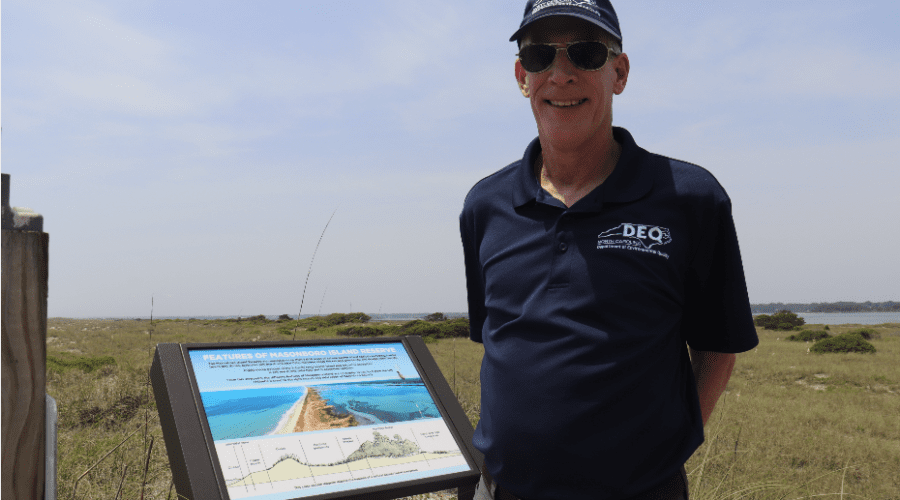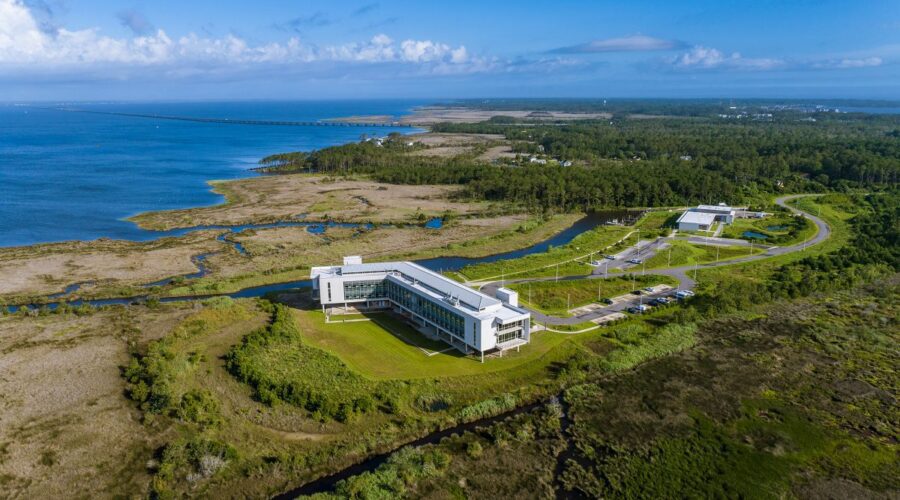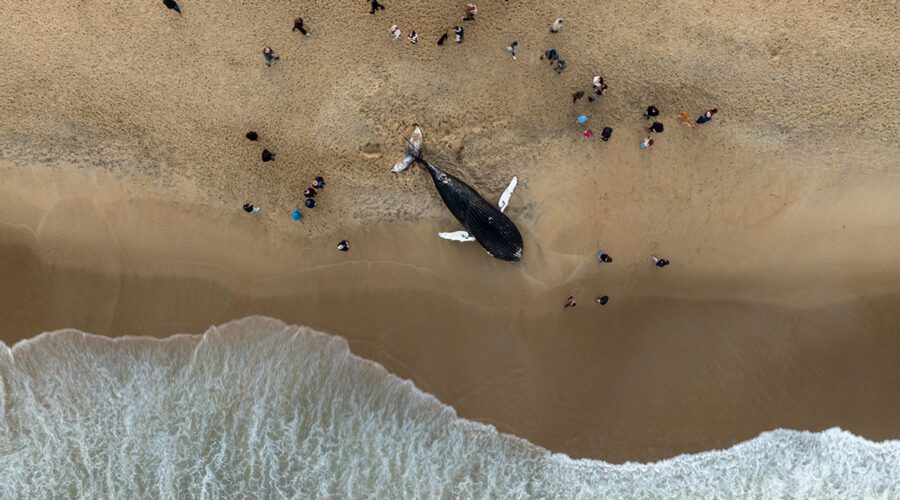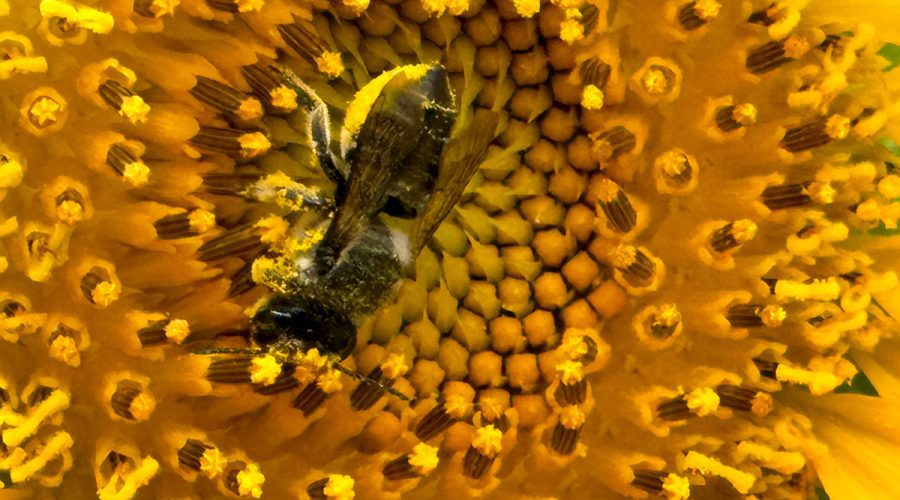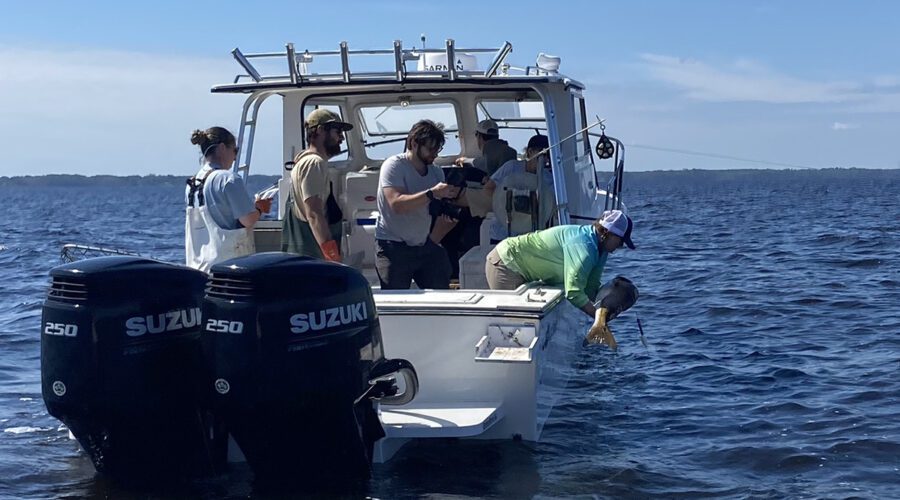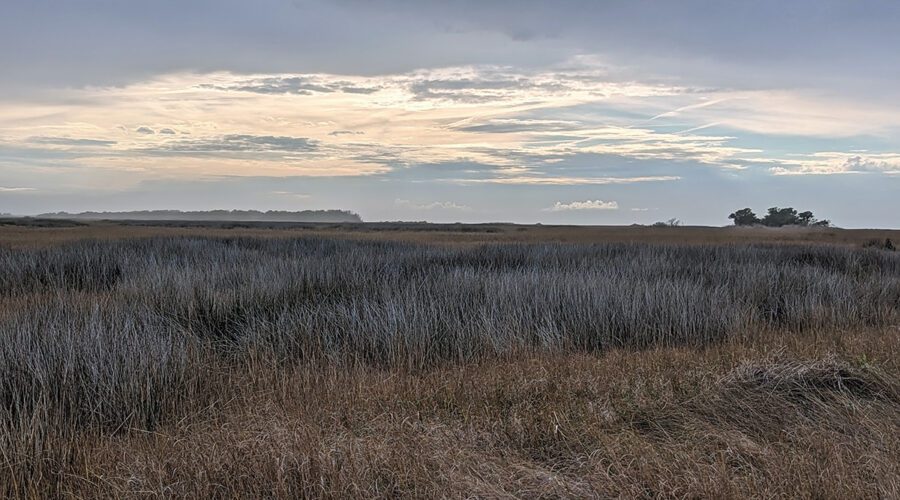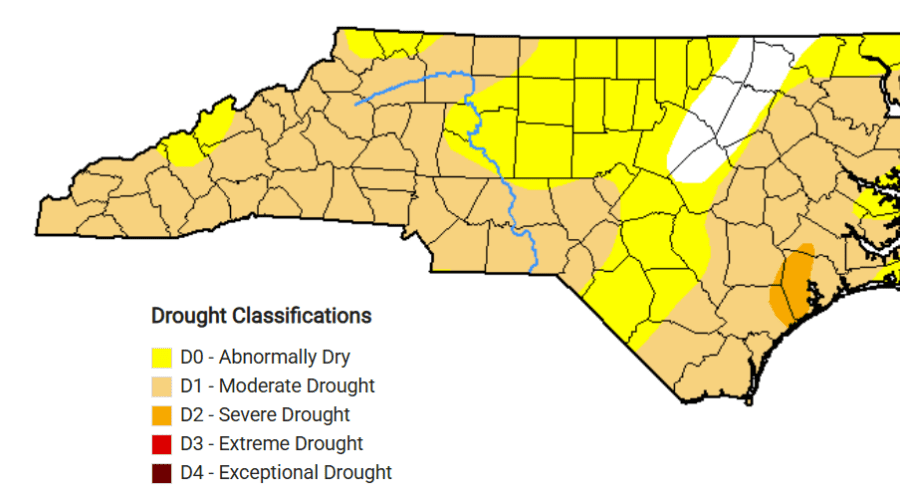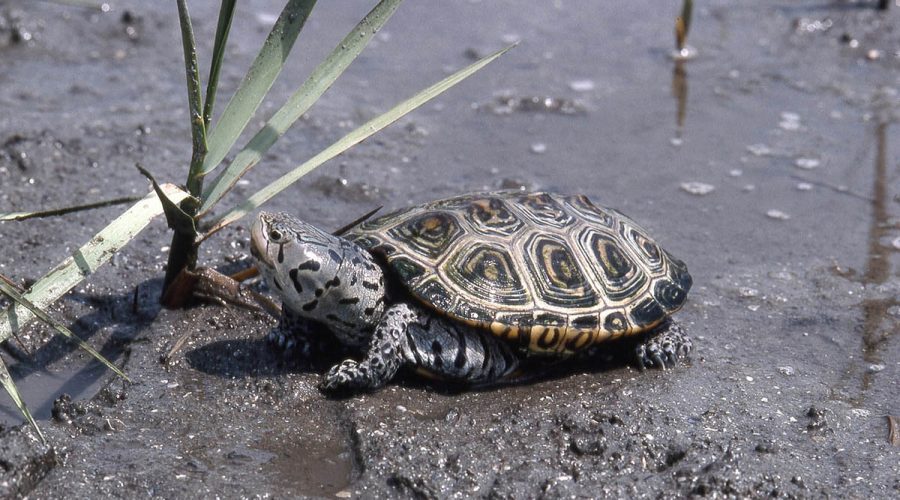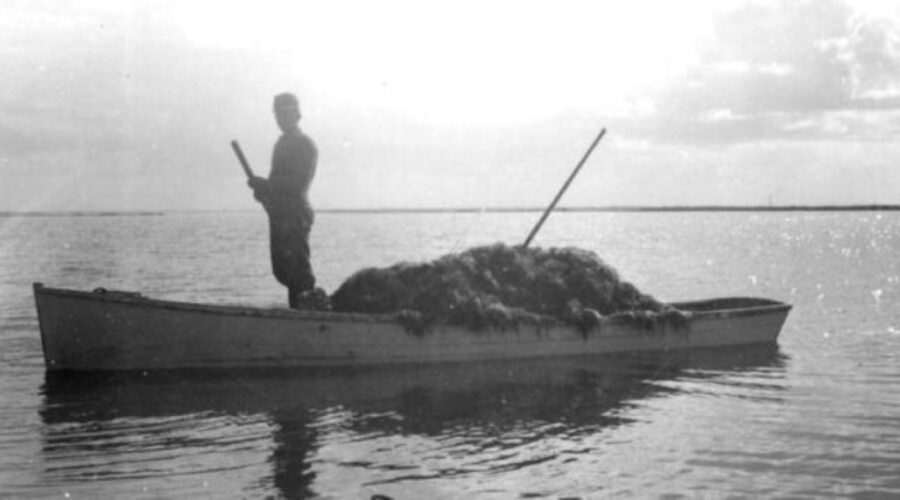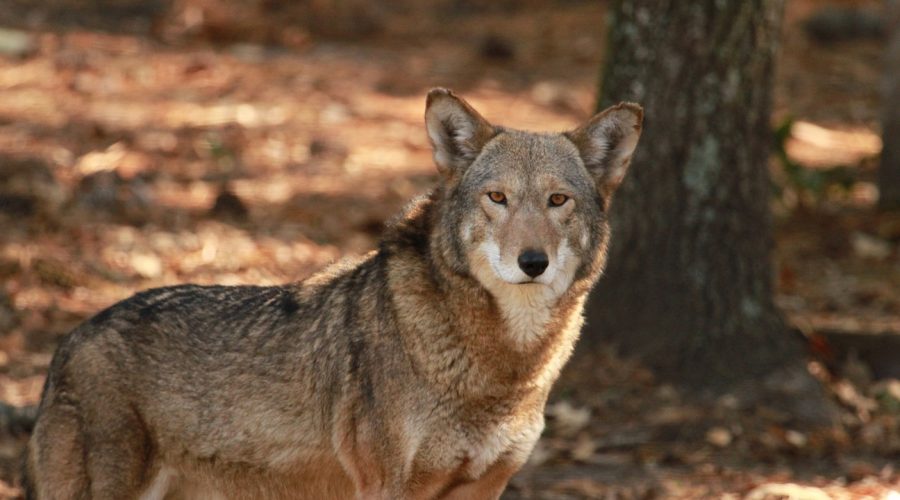Coastal communities are inundated more often than previously believed, with levels taking longer to recede in rural areas, and the way government agencies gather data to predict floods fails to provide true estimates, according to a report published Monday.
science
Core Sound readies for annual summer Parlor Talk Series
Cape Lookout National Seashore’s wildlife biologist Dr. Sue Stuska is to speak during the July 3 summer Parlor Talk Series at Core Sound Waterfowl Museum and Heritage Center’s Morehead City location.
Humpback eyes see silhouettes at distance, little detail: Study
By measuring a humpback whale eye specimen, University of North Carolina Wilmington and Duke University researchers found that the species has limited vision but that it suits their natural environment.
Forecasters predict 13 to 19 named storms for 2025 season
National Weather Service forecasters are predicting the 2025 Atlantic hurricane season, which begins June 1 and ends Nov. 30, to have above-normal activity.
‘Egg drop challenge’ launches ‘egg-cellent’ questions
The incredible, edible egg is also breakable, but at what height? Heidi Skinner has some questions about a Massachusetts Institute of Technology study on the “egg drop challenge.”
Tour highlights importance of state’s coastal reserves
State officials and North Carolina Department of Environmental Quality staff took a tour Friday of Masonboro Island Reserve in Wilmington that highlighted the special coastal site.
Institute, ECU Outer Banks Campus to welcome public
The Coastal Studies Institute and ECU Integrated Coastal Programs are hosting an open house from 12:30 to 4 p.m. Saturday, May 17, at the campus in Wanchese.
Fishermen, scientists differ on whale mortality, wind energy
Opinions up and down the North Carolina coast differ on the reasons behind rising numbers of Atlantic whale deaths, but marine researchers say the science is clear.
Wilmington Earth Day festival to be a ‘fun-filled afternoon’
Wilmington’s 35th annual Earth Day Festival taking place April 26 is to feature educational activities, live music, exhibitors, food trucks and more.
Coastal Land Trust to host ‘Pollinator Palooza!’ April 26
Education and information about pollinators, as well as free plants seeds to start your own pollinator garden, will be available at this year’s “Pollinator Palooza!”
Satellite tracking study aims to unlock more red drum secrets
A project now in its second year seeks to temporarily tag and track by satellite 40 of the saltwater species so popular with recreational anglers could help fill data gaps that decades of research studies have so far left open.
Doomed to repeat history: What’s in future for NC wetlands?
Guest commentary: Ignoring the past guarantees a grim future for our coastal communities, as the fishermen of Rose Bay warned decades ago. Will we listen now, or once again pay the price for failing to protect our way of life?
Drought, dry conditions persist in coastal counties
The latest weekly advisory from the North Carolina Drought Management Advisory Council shows drought conditions continue to grip much of the state.
Volunteers sought to count for coastal ‘Terrapin Tally’
The 11th annual volunteer headcount of diamondback terrapins in coastal waters from Carteret County to Brunswick County kicks off next month.
When fishermen harvested seaweed: Beaufort’s agar industry
The curiosity that sparked when historian David Cecelski came across photos taken in 1944 of fishermen harvesting seaweed near Beaufort inspired a “bit of a deep dive” into topics he never imagined studying: the history of agar, ecology of seaweed, the wartime crisis that led to seaweed harvesting and the construction of the Beaufort agar factory.
Wildlife commission seeks advisory committee nominees
Eligible North Carolina residents’ names may be submitted for the state Nongame Wildlife Advisory Committee membership through April 18.

